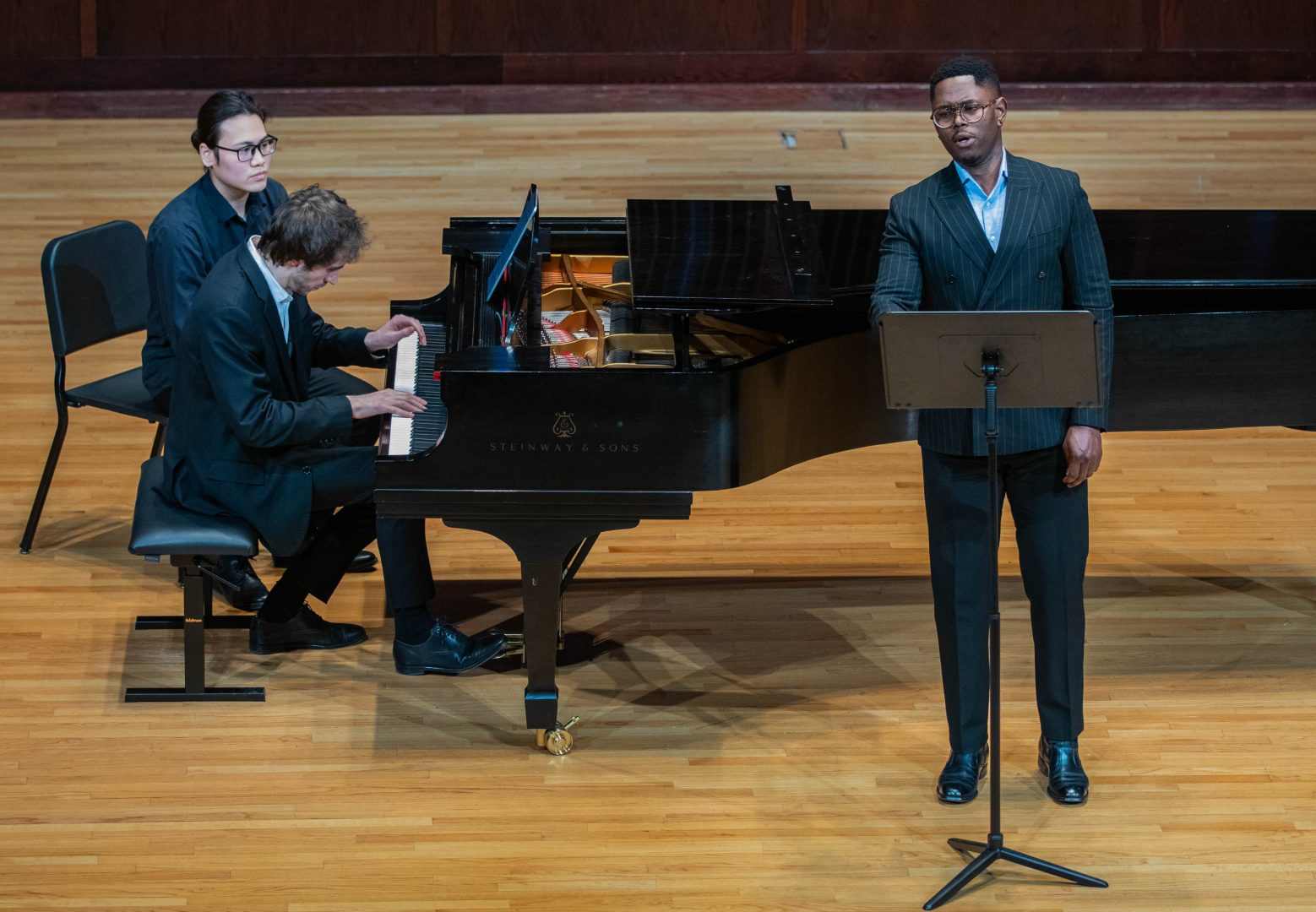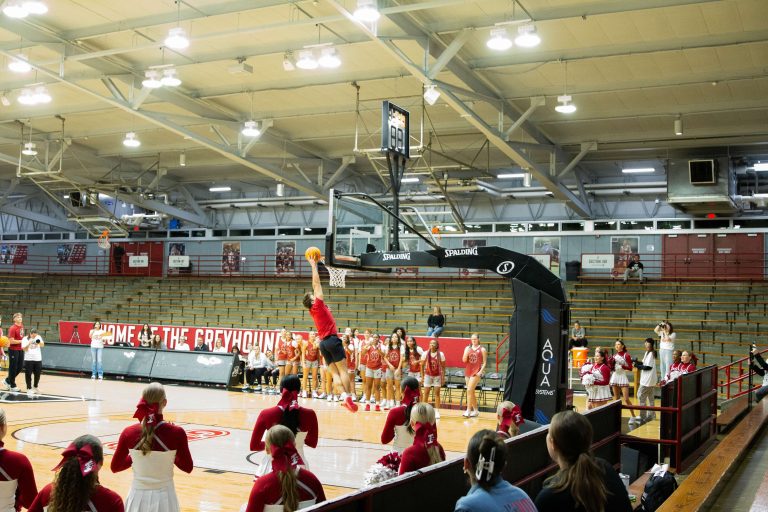
Anthony Davis, a Pulitzer Prize-winning composer, visited the university to talk to students about his life experiences as an African-American composer and attend a concert performing his works.
Davis has written orchestral works performed by the Boston Philharmonic Orchestra, Atlanta Symphony, New York Philharmonic Orchestra and the Cincinnati Symphony Orchestra. According to his website, Davis was inducted into the Opera America Hall of Fame in 2024, graduated from Yale University and is currently a professor of music at the University of California, San Diego. He has composed five operas, the most notable being “The Central Park Five” and “X: The Life and Times of Malcolm X.”
On Feb. 10, Davis gave a public interview about his opera “X: The Life and Times of Malcolm X.” In the interview, he broke down the musical structure of his opera and how that relates to the life of Malcolm X and why he decided to write an opera over a musical.
“I wanted the storytelling told with music,” Davis said. “To me, music is part of the action. Music is part of one part of the narrative.”
Davis explained that he was not interested in dialogue between musical numbers. He wanted the music to compel it as the “life force.” He also went on to talk about how the opera faced scrutiny and had patrons of the opera hall pull their funding due to the opera being about Malcolm X. He also explained that erasure is something African-American artists come to realize when dealing with African-American history.
“You realize that that’s the power of erasure, and that’s what always we fight … because they tried not only to erase the culture, which they’re certainly trying to do, but now to erase the history.”
On Feb. 11, there was a concert performing Davis’s works. The concert had three groups of musicians who were a mix of Undy Faculty and guest artists. The first group of the night included a flute, a cello and a piano. The second group to take the stage had a piano and a vocalist. The final group of the performance consisted of a trombone, a bass and a piano. As far as the music goes, avant-garde would be the best way to describe it.
The instrumentations were something I had never seen before, and the music was full of pauses and silence. It was not bad by any means, I thoroughly enjoyed myself, but sometimes I was confused on what exactly I was listening to. Now, I admit, I am not an avid operagoer, but nevertheless, the music was not what I was expecting.
The highlight of the performances were the performers themselves. It was apparent that music was not easy; the music was full of pauses and unique moments where everything had to be perfect, and the performers were flawless. It was clear to me that I was watching dedicated musicians who cared very deeply about the music they were playing. The concert felt like a celebration of Anthony Davis, as after each piece, the audience would clap for the performers, then for Davis, who was in the audience.
Something that stood out to me was that Davis did not perform any of his works. It was all done by the guest and faculty musicians. When I arrived at the concert, I was expecting him to play. The fact that he did not kind of caught me off guard. This felt abnormal to me, as in past concerts I had attended both at and outside the university, when there was a guest artist, they always played. According to an article from Stanford University, it is normal for composers to not play their own works, as some of their music may be complicated and would require a skilled musician to play. After listening to the concert, that made total sense. I am not a professional musician, but it certainly felt that the music was very complex and most likely required highly skilled musicians to play them.
Overall, I enjoyed myself at the concert and got a taste of music I normally would not find myself listening to. It was all around a good time and I am glad I took time out of my evening to attend.








